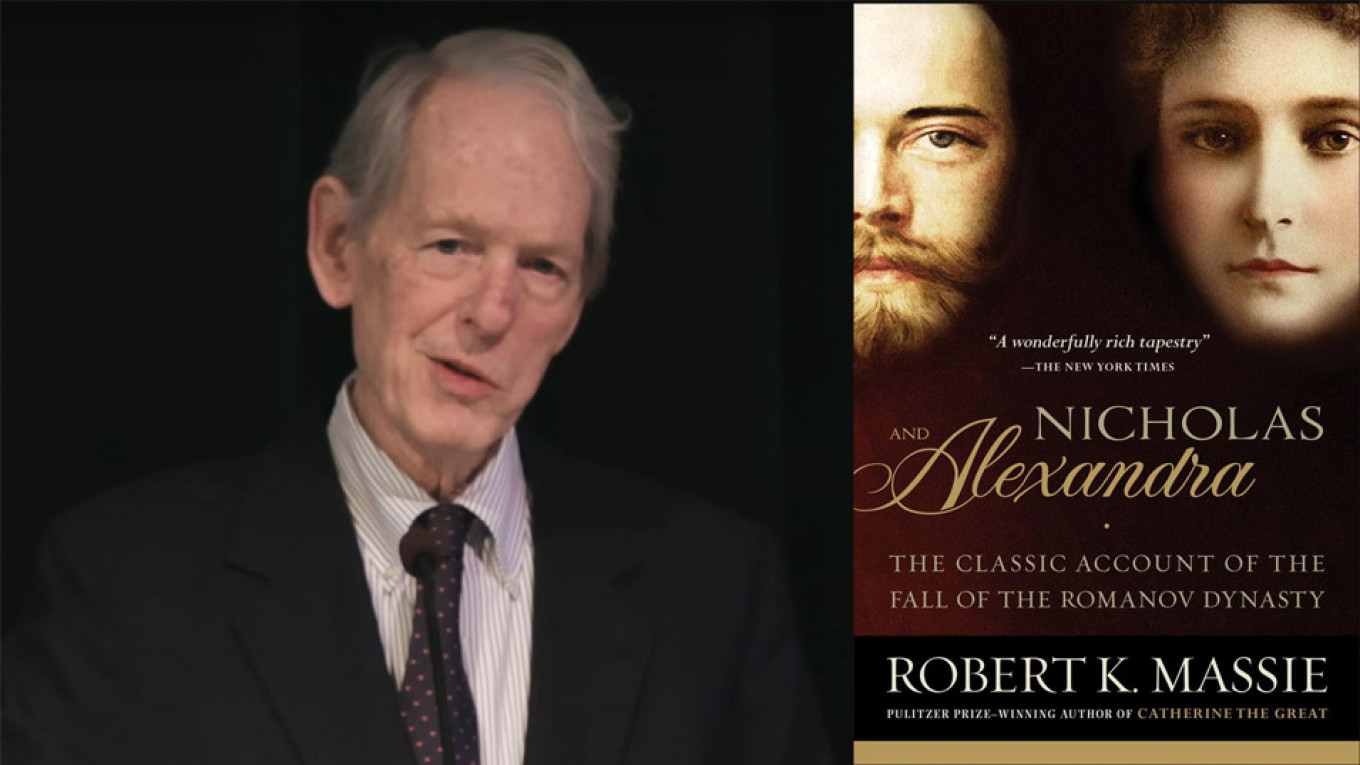
On Dec. 2 Robert K. Massie, author and historian of Europe and pre-Revolutionary Russia, passed away in Irvington, New York at the age of 90. The cause was complications associated with Alzheimer’s.
Massie’s works on Russian, European and military history sold more than 6 million copies worldwide. He began his literary career with “Nicholas and Alexandra,” published in 1967, which he was prompted to write because he and his wife, Suzanne Massie, had a child with hemophilia like the tsarevich Alexei. It was an extraordinary publishing success, often cited as a gateway to lifelong careers in Russian studies by academics and specialists.
Massie had a gift for storytelling and popularization. Without dumbing down the story of the fall of the House of Romanov, he was able to make comprehensible the complex power and ideological conflicts of the Russian revolutionary period as well as the sometimes fraught and confused relationships among political, aristocratic and royal personages in Russia and Europe. Not even those impenetrable triple-decker names and improbable nicknames kept readers away from this 900-page history.
Massie went on to write several more books about the Romanovs, including the Pulitzer prize-winning “Peter the Great: His Life and World” (1981) and “Catherine the Great: Portrait of a Woman” (2011), as well as two books about World War I: “Dreadnought: Britain, Germany, and the Coming of the Great War” (1991) and “Castles of Steel: Britain, Germany, and the Winning of the Great War at Sea” (2004).
Massie was born in Kentucky and graduated from Yale University with an undergraduate degree in American and European history. He received a Rhodes scholarship to study at Oxford University. After serving in the navy, he began to work in journalism, starting as an office boy at Colliers. He later joined Newsweek as the book critic and The Saturday Evening Post as a features writer. Over the years, his works appeared in such periodicals at The New Yorker, Vanity Fair, and The New York Times. He was president of the Authors Guild for several years.
Massie and his first wife, Suzanne, an author whose books about Russian culture brought her to the attention of Ronald Reagan and into international politics, were divorced in 1990. Massie is survived by his second wife Deborah Karl, six children, seven grandchildren and one great-grandson.






